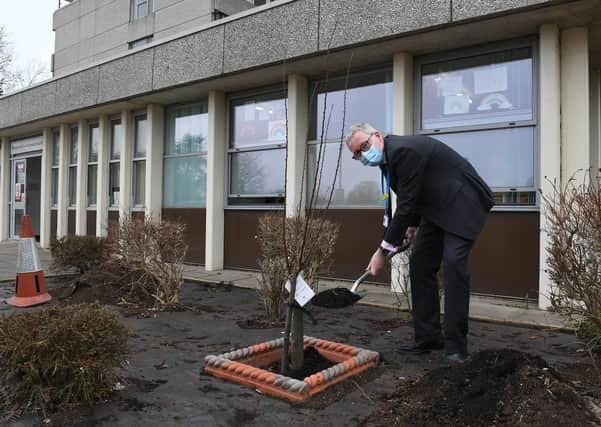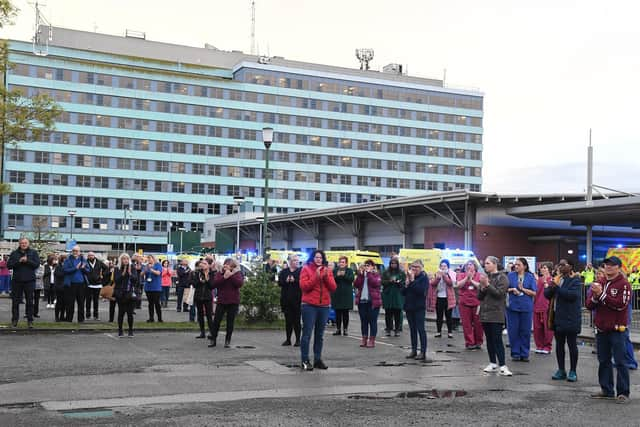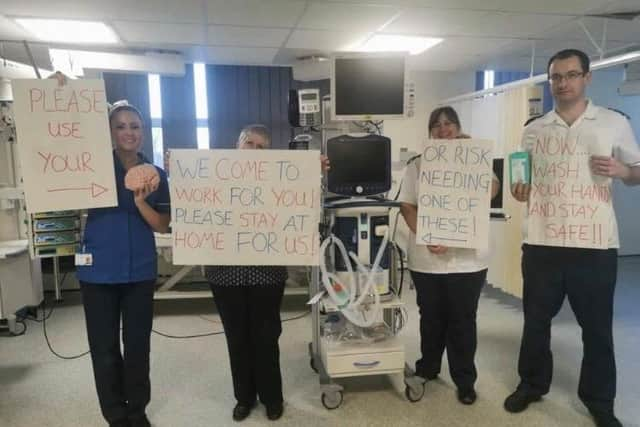ULHT chief executive says: ‘Our hearts go out to everyone affected’


By the end of March there were more than 100 cases in the county and it was rising sharply.
One year on the United Lincolnshire Hospitals’ Trust has dealt with almost 3,000 confirmed Covid-19 inpatients across its sites, and 813 of those lost their lives.
Advertisement
Hide AdAdvertisement
Hide AdThe trust itself has paid a heavy cost. Many staff have themselves been hit by the virus, and staff have had to work long hours under huge strains, and have often been separated from their families for long periods.


And it lost one of its own on April 27 when nurse Kumar Pavithran lost his battle with the virus.
As the trust planted trees across its sites last week dedicated to all those affected by the coronavirus, its CEO Andrew Morgan said his staff had responded magnificently. “They have been fearless, professional, compassionate, selfless, resilient and flexible. It has been truly humbling to see,” he said.
“Staff have lived away from home, have been separated from their families on occasion and have had their annual leave arrangements disrupted. Many staff have moved departments or sites in an effort to help out.
Advertisement
Hide AdAdvertisement
Hide Ad“They have dealt with some very distressing circumstances. We have provided wellbeing support including mental health support. The public have also been very supportive and generous, which we are very grateful for.”


Looking back to the start of the crisis Mr Morgan said there were pre-existing pandemic plans that they were able to use, along with existing Emergency Preparedness, Resilience and Response systems and procedures. “We relied on public health modelling and the experience from other countries. What was hard to predict was the second wave that came in November.
“I am not sure anyone, including the public or politicians could have predicted the scale of what happened.”
As the number of covid cases spiralled, the Trust had to reallocate care. “We had to arrange our services so that we could keep separate as much as possible, those patients who were covid-free and those patients with covid or suspected of having covid,” said Mr Morgan.
Advertisement
Hide AdAdvertisement
Hide Ad“Examples include separate streams of patients in A&E, virtual out-patient consultations, the Green site at Grantham. We have also had to expand our critical care capacity.”
He said around 14 per cent of staff were absent at any one time during the peak of the second wave, with about half of those absences believed to be covid-related.
Mr Morgan also paid tribute to those who supported the front-line carers. “We all have benefited from the support of our families, friends and the public. I wrote to the children of staff members to thank them for supporting their mum/dad.”
And the outpouring of public support, seen with the Clap for Carers nationally and various fund-raising initiatives around the county – and the efforts of the public to comply with lockdown rules – had been very important.
Advertisement
Hide AdAdvertisement
Hide AdHe said: “Our hearts go out to everyone affected. We realise that statistics are about real people, our own loved ones and the loved ones of other people.”
Now he said they need to tackle the backlog of work including time critical surgery.
It was important now to support the personal stress levels trust staff had experienced during the crisis. “Our staff need time to recover and we need to do everything we can to support their wellbeing,” said Mr Morgan.